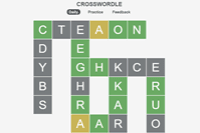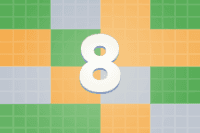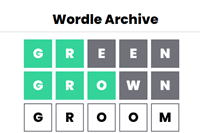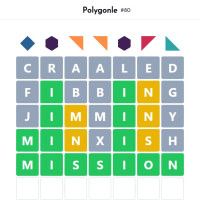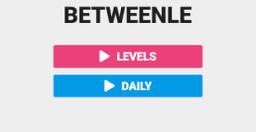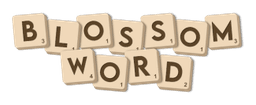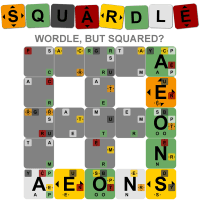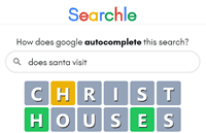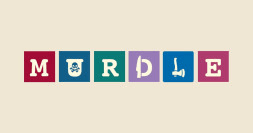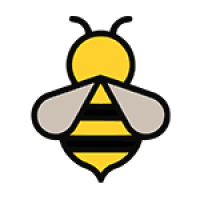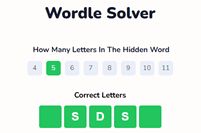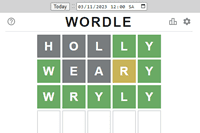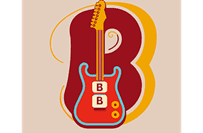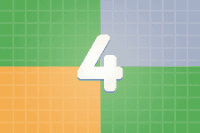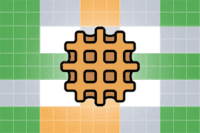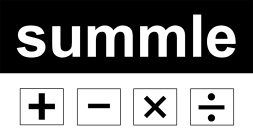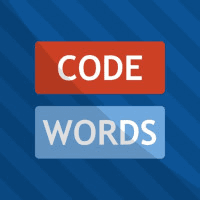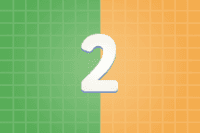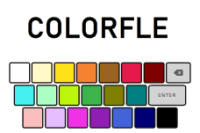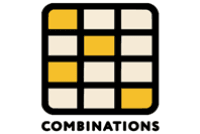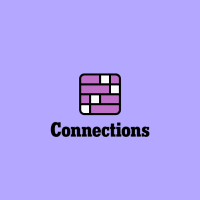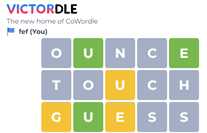Wordle Unlimited
Welcome to Wordle Unlimted! Challenge yourself with unlimited word puzzles - guess the hidden 5-letter word in 6 tries. Perfect for both casual players and word enthusiasts. Play as much as you want, completely free!
Wordle is a popular online word puzzle game that challenges players to guess a five-letter word within six attempts. Launched in 2021, it became widely popular due to its simple design, daily puzzles, and the ease of sharing results with friends. We have improved this game to make it easier for users to play with two versions: daily and unlimited. The daily version offers a new puzzle every day, while the unlimited version allows players to play as many times as they want. This makes it perfect for both casual players and word enthusiasts. With its addictive gameplay and challenging puzzles, Wordle is a great way to improve your vocabulary and word recognition skills.
We have also added 4-letter and 6-letter versions of the Wordle game for more variety and challenge.
How to Play
Wordle is an addictive word guessing game that's easy to learn but challenging to master. Here's your complete guide:
Basic Rules
- Your goal is to guess a secret 5-letter word
- You have 6 attempts to find the correct word
- Every guess must be a valid 5-letter word
- After each guess, you'll get color-coded hints
Understanding the Colors
After each guess, the letters will be colored to help you:
🟩 Green - Perfect Match!
- This letter is correct and in the right position
- Keep these letters in the same spot for your next guess
🟨 Yellow - Almost There!
- This letter is in the word but in the wrong position
- Try this letter in a different spot next time
⬜ Grey - Miss
- This letter is not in the word at all
- Avoid using these letters in future guesses
Example Game
Let's say the secret word is "SMART":
- You guess "STARE"
- S turns 🟩 (correct spot)
- A turns 🟨 (wrong spot)
- R turns 🟨 (wrong spot)
- T and E turn ⬜ (not in word)
- Using these hints, you might guess "SPARK"
- And so on until you find the word!
Important Tips
- Each guess must be a real word
- Letters can be used more than once
- The same word is used for everyone each day
- A new puzzle becomes available every day at midnight
- You can share your results without spoiling the answer
Now you're ready to play! Type your first 5-letter word and start solving!
Play Today Wordle with Various Number of Letters
Choose a word puzzle with the length of the hidden word from 4 to 11 letters. Explore different challenges and enhance your word-solving skills!
- 4-Letter Words Wordle: Start with 4-letter words for a quick challenge.
- 5-Letter Words Wordle: The classic Wordle experience.
- 6-Letter Words Wordle: Test your skills with longer words.
- 7-Letter Words Wordle: A more challenging puzzle awaits!
- 8-Letter Words Wordle: Push your limits with even longer words.
- 9-Letter Words Wordle: For the ultimate word puzzle challenge.
- 10-Letter Words Wordle: Can you guess the 10-letter word?
- 11-Letter Words Wordle: The longest challenge for the bravest word solvers!
Pro Tips for Winning
Best Starting Words
Start with words containing common letters like "STARE", "ADIEU", or "RAISE". These help eliminate many possibilities early.
Strategic Guessing
- Use grey letters to narrow down possibilities
- Test yellow letters in new positions
- Build around your green letters
- Remember: Common letters (E, A, R, I, O, T) appear more frequently
- Watch for double letters (like in "HAPPY" or "SPEED")
Game Features
✨ Unlimited free puzzles 📊 Progress tracking 🎯 Share results with friends 📱 Mobile-friendly 🚫 No ads or interruptions
Recommended Game Sites
If you enjoyed the unlimited Wordle challenges, you might also like these games that test your word-guessing skills:
- cryptordle.cc: Word puzzle game combining cryptograms with Wordle gameplay.
- letterboxed.me: Word puzzle game where players connect letters to form words in a box.
- connectionsunlimitedonline.github.io: Addictive word grouping puzzle game to find hidden connections.
- playpacman.vercel.app: Exciting world of Pacman game.
- dordlegame.cc: Players solve two 5-letter word puzzles simultaneously. Each guess applies to both puzzles, with 7 attempts to solve them. Features unique word sets and additional gameplay elements.
- nerdle.cc: Mathematical twist on word-guessing games where players solve equations.
- connect4.club: Classic strategy game where players connect four discs in a row.
- wordlehelp.me: Tool offering tips and strategies for solving Wordle puzzles.
